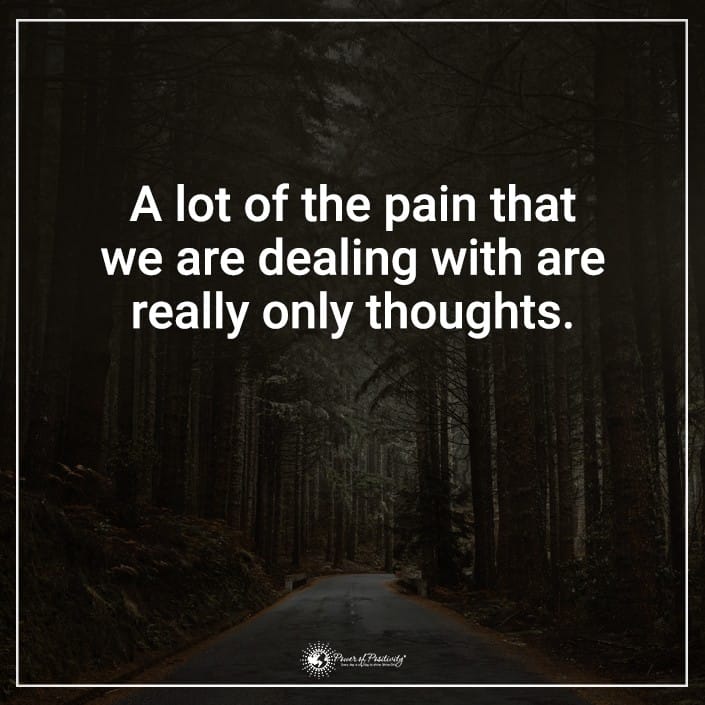Sometimes you need to get away from it all. Daydreaming is a great way to do this if you can’t physically get away. Fantasizing about something that makes you happy…well, makes you happy.
Sometimes it can be taboo – it comes with a notion that you’re wasting time or not being efficient. However, it can be healthy for you and has other perks. In this article, you’ll learn how it reduces anxiety.
What is Daydreaming?
You probably already know that daydreaming is when you sit or lay somewhere, stare off into space, and imagine being somewhere else, doing something else, or being someone else. It’s where you fantasize about your wildest dreams. It’s where you imagine a private alternative life in your head where you’re delighted and free of judgment.
This is a perfect description, but, scientifically speaking, it goes deeper than that. Dr. Eric Klinger, professor of psychology at the University of Minnesota, says that daydreaming helps reveal your goals, innermost desires, and fears. It’s safe to say that having daydreams helps to keep you mentally focused and balanced.Benefits of Daydreams
Having daydreams regularly can offer you several benefits besides the ones mentioned above. While the benefits are mostly related to mental and emotional health, improving these two can improve physical health. Some of these benefits include:
- Decreased stress
- Improved memory
- Better mood
- Increased creativity
- Enhanced performance and improved productivity
With all these benefits, it should be no surprise that having daydreams is a great way to reduce anxiety. It’s almost like a holistic and natural approach to better health. As long as daydreaming doesn’t become interruptive to your life, it’s a great way to escape your stressors temporarily.
Downsides of Having Daydreams
There are a bit of controversy surrounding daydreams. While most psychologists agree that there are benefits to fantasizing about your desires, some say that daydreaming may cause more harm than good. Some psychologists believe that having daydreams is indicative of a mental illness.
Before you panic, keep in mind that these psychologists who believe that having daydreams is harmful to refer to people who daydream excessively. Some believe excessive daydreams could signify concentration difficulties, which occur in many mental illnesses. You should be fine if you aren’t zoning out in the middle of important tasks.
There is also an issue of having daydreams about bad things. This is known as intrusive thoughts. You may dream of a loved one or yourself dying or committing suicide. You may dream that some random disaster will occur or that you’d catch some random, deadly disease. Psychologists say this is a sign of obsessive-compulsive disorder (OCD).
If your daydreams are along these lines, you need to get help. However, if they’re harmless, they can be helpful in your daily life.
How Daydreaming Reduces Anxiety
When discussing how daydreams reduce anxiety, it will be under the assumption that you’re having good daydreams, not intrusive thoughts. Because daydreams and fantasizing offer so many mental health benefits, it’s no surprise they relieve anxiety. Here is some background on anxiety, which will help you understand why daydreaming helps relieve it.
What is Anxiety?
Anxiety is a natural response that your body gives when you are stressed. It’s that feeling you get before a first date, on a job interview, or before a major test. You may sweat, have a rapid heartbeat, and feel uneasy.
Anxiety has a bad reputation, but it’s not necessarily bad. Anxiety was (and still can be) a survival mechanism that the human body developed to protect itself from danger. It causes a release of adrenaline that prepares you for the fight-or-flight scenario.
In ancient times, this was helpful when humans were trying to survive the wild, but the fight or flight response isn’t needed for dates and interviews in modern times. Unfortunately, anxiety doesn’t know this, so it’s still there.
Anxiety can sometimes be irritating and unwelcome, especially if you are doused in a bucket of sweat. However, whether it’s good or bad depends on how often you get anxious, how anxious you get, and how you handle anxiety.
Anxiety vs. Anxiety Disorder
There is anxiety, and then there are anxiety disorders. A little anxiety is okay, but it can be called a disorder when it becomes debilitating. While having daydreams helps people suffering from anxiety and anxiety disorders, it’s most needed for people suffering from disorders.
There are many types of anxiety disorders:
- Generalized anxiety disorder (GAD)
- Panic disorder
- Separation anxiety disorder
- Post-traumatic stress disorder (PTSD)
- Phobias
- Social anxiety disorder
- Obsessive-compulsive disorder (OCD)
- Illness anxiety disorder
According to the Anxiety and Depression Association of America (ADAA), anxiety disorders are America’s top mental health illness. It affects 40 million adults in the U.S., but only about 37% receive treatment. Phobias are the top anxiety disorder affecting Americans, while social anxiety disorder comes second.
Even if a person is suffering from a disorder instead of regular anxiety, it’s easily treatable. Having daydreams isn’t a replacement for medical/professional treatment, but it helps.
Relieving Anxiety with Daydreams
This section is the meat and potatoes of the article. Having daydreams can relieve the symptoms of anxiety as well as how often a person may experience anxiety. Here is for ways how daydreams do this.
1. It can make you happier.
Fantasizing about things that make you happy can make you happy, even if those things aren’t real. Being happier helps to reduce the effect that stressors have on your psyche. The happier you are, the more things can “roll off of you.” When you can shake things off so easily, they are less likely to make you anxious.
2. You’ll have a safe space.
Maslow’s Hierarchy of Needs indicates that feeling safe is a basic human need. According to Maslow, the needs above safety (psychological and self-fulfillment) can’t be met until the need for safety is met. As you can imagine, a person whose psychological needs aren’t being met will have a high risk of suffering from anxiety disorders.
Having daydreams is a way that a person can create a safe space. This is extremely important for people who may not feel that they have a safe space in real life. While fantasies should never replace real life, it’s okay to retreat to a safe space until you can have one in real life. It’s a survival mechanism that can get people through the toughest times.
3. You can let your creativity run wild.
Many people have so many thoughts and ideas jumbled up in their brains. While these creative thoughts aren’t bad, constantly having your brain clogged up with repeated thoughts and ideas can lead to stress and exhaustion. This can cause a person to have a higher risk of anxiety.
The best way to stop this is to get it all out. Having daydreams is a great way to let your imagination run wild without being judged. Not only will it clear your mind, but it can lead to some of the best ideas you’ve ever had.
4. You may reveal things about yourself you weren’t aware of.
Having daydreams is a bit like meditating, except that you aren’t clearing your mind. You’re letting it roam. You would be surprised at how much your unconscious mind holds. When you’re aware, you might be blocking these unconscious thoughts, but letting your mind roam in a safe space that you’ve created can allow these unconscious thoughts to reveal themselves.
You may discover needs that aren’t being met, things in your living or working area that’s making you unhappy, issues that may be affecting your health, and more. Discovering these things allows you to fix them, leading to an environment and lifestyle less likely to trigger anxiety.
Final Thoughts on Daydreaming
There are so many opinions, both professional and amateur, about daydreaming. Some people say having daydreams are good, while others think it’s bad. Psychologists even say that it can indicate mental illness.
The truth is that anything is bad for you if you do it too much. If you allow daydreaming to interfere in your daily functioning or if you replace reality with fantasy, then yes, it’s a problem. However, if you escape into your fantasies for a little while to get away from stress, having daydreams can be unbelievably valuable.
As long as your daydreams are kept under control, it can be beneficial for your health. There is no debate about whether it can help with anxiety or not – done in small doses; it can be as relaxing as a massage. Plus, the other benefits you get from daydreams make it even more worthwhile. Don’t be afraid to try it – it’s normal, and most people already have daydreams anyway.
















 Community
Community

